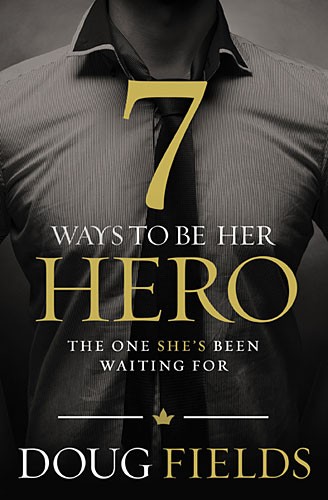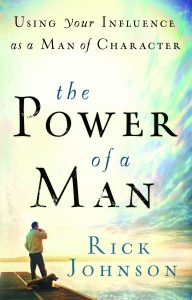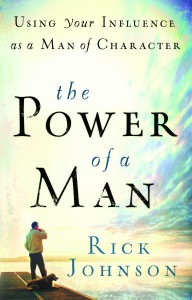If you’re planning a vacation this summer, then you know there’s nothing like lazing by a pool while sipping a cool bottle of sarsaparilla and reading a good book.
Let’s make that a good novel.
That might sound strange coming from an author who makes his living writing nonfiction, but I hope that men everywhere begin to read more fiction.
Women read fiction. Yes sir. They devour those Amish romance novels by the barrelful. But men have a bit of a reputation for disdaining fiction, and I’d like to help change that.
Why?
The Art of Manliness ran an excellent article last April that delved into the science behind the positive results that fiction generates for your brain. Fiction brings about more creativity and helps shape for better how you think and see the world.
Also telling were the comments underneath the article—more than 163 from men all around the world all recommending novels that positively impacted their lives.
Commenters talked about classics such as Pulitzer-winning The Road by Cormac McCarthy, and the very-manly The Old Man and the Sea by Hemingway. Many men said they also enjoyed commercial fiction by dudes such as John Grisham, Tom Clancy, Ted Dekker, Dean Koontz, and Orson Scott Card.
I’d like to add one point to that outstanding article.
It’s the biggest reason you should read more fiction.
Because fiction contains truth.
Now, if that sounds counterintuitive to you, let me explain. Often men say they don’t read fiction because they want to read only truth, and they insist fiction is untruth because it’s made up.
Sure, that’s a fact: unless you’re reading historical fiction, you’re seldom reading about real characters or events that took place.
But here’s another fact: there’s truth in fiction too. It’s imbedded in the narrative. And sometimes, since the truth in fiction comes wrapped around a story that captivates your attention, the truth will be presented so powerfully that it hits you with more impact than if you read the same truth in a nonfiction book.
Case in point.
I just read The Complete Western Stories of Elmore Leonard. He originally wrote 3:10 to Yuma. You may have seen the movie on which it’s based. He also wrote the novels Get Shorty and Be Cool, which were also made into movies. And he wrote Fire in the Hole, which the TV series Justified is based on.
One of Leonard’s short stories is called The Tonto Woman.
It describes an affable outlaw named Ruben Vega who in the 1880s encounters a strange skinny white woman living all by herself in the Arizona desert.
The woman is filled with rage and hurt, closed, standoffish, skeptical, mistrusting, and guarded—classic signs she’s encountered abuse somewhere in her life.
Strangest of all is how her face is mysteriously tattooed on both cheeks by three blurry blue stripes that extend from her cheekbone to her jaw line.
Little by little, her story comes out.
Twelve years earlier the woman was a beautiful bride, newly married and living with her husband, a poor but honest cattleman, when she took a trip to visit her parents.
Yavapai came looking for food, clubbed her parents and two small brothers to death, and took the young bride north with them as spoils of the crime.
The Yavapai soon traded her traded her to the Mojave as a slave, who permanently marked her face according to their tribal customs.
When a drought came, the Mojave traded her to the Apaches for two mules and a bag of salt. When the Apaches were rounded up to be sent to Oklahoma, the woman was rescued and returned home to her husband.
Only one problem now. The husband, in the meantime, has grown rich from his cattle business. He’s grown respected in the community. He’s grown self-important.
And he doesn’t want anything to do with his wife.
So the rich husband sets her up in a small adobe hut on the lonely end of his vast property. He gives her chickens and a cow and sends his hired hands every month to look in on her with flour and supplies from town.
The woman lives a forsaken existence, withering away in the desert. It’s the 1880s, what other choice does she have?
Her husband provides for her. But that’s it.
The outlaw Ruben Vega decides to change that.
Vega is a ladies’ man at heart. Later before he dies, he confesses to a priest how he’s fornicated with at least 600 women.
“Do you mean bad women or good women?” the priest asks.
“They are all good, Father,” Vega says.
Back with his plan, Vega rents a suit coat from the town undertaker, buys a pretty dress for the woman, picks a stack of flowers, and visits her at the adobe of banishment. He invites her out for a special dinner in town, and to his surprise, she accepts.
The two create quite a scene in the dining room of the Charles Crooker Hotel in Benson, Arizona—the notorious outlaw sitting across a white-clothed table from the once-beautiful cattleman’s wife.
The tension ratchets up when the rich cattleman shows up and confronts the two.
Vega is unfazed. He says to the cattleman, “Why don’t you sit down and have a glass of wine with us …
I’ll introduce you to your wife.”
Thrown off guard, the cattleman consults his conscience and sits.
“We are married,” he says to his tattooed wife. “I have an obligation to you and I respect it. Don’t I provide for you?”
The wife turns to the outlaw and smiles in mockery at her husband’s words. “Did you hear that,” she says. “He provides for me.”
As if that’s all that’s required of a husband.
The story ends soon after that.
It leaves the point ringing in the reader’s ears. The theme isn’t spelled out. It’s implied.
Too many women, whatever their various painful givens have been, are left out in the wilderness by their husbands. They are provided for out of duty. But long gone are the suit coats, the presents of pretty dresses, and the stacks of flowers given out of love.
Take your wife to dinner, men. That’s what this bit of fiction begs you to do. No matter what’s transpired between the two of you since you’ve been married.
Cherish her.
And don’t let some outlaw steal her away.
That powerful truth is why men need to read more fiction.
It ain’t a novel, but it reads like one–and it’s a great vacation read.












